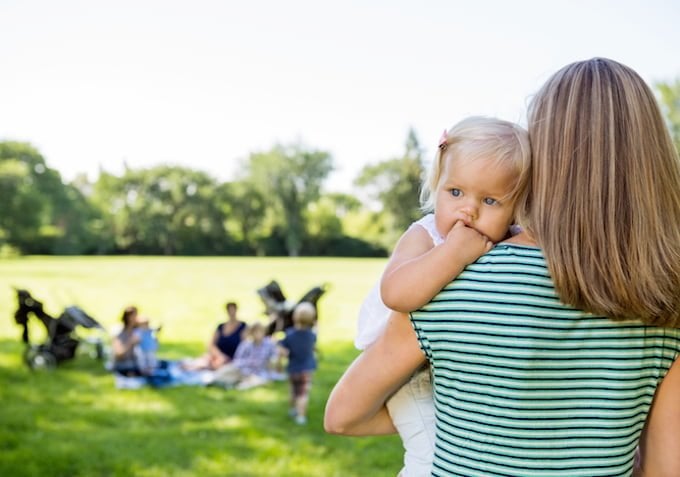How to Navigate the Naysayers of Attachment Parenting and Eco-Conscious Living
Attachment parenting—like any style of parenting that goes against the conventional grain—might seem foreign to your friends and family members. The good news is, living an eco-conscious and holistic lifestyle doesn’t have to alienate you or them. 
“If you hold that baby all the time, you’ll spoil her.”
“I let my kids have soda, and they turned out fine.”
“My husband would NEVER let our son play with dolls!”
The journey to motherhood begins with a thousand choices. Once you become a new parent, it seems that every topic—from what to eat to how to discipline your little one is open season.
And, if you decide to venture down a less traditional, holistic path and seek out natural, integrative therapies or eco-conscious lifestyle options, more unwelcome advice rolls in. While most people have good intentions, the overwhelming urge to share their opinions has long been the impetus for parents feeling judged.
It doesn’t mater if you’re opting for a natural childbirth, choosing homeopathic remedies for your kids, or seeking out organic produce at a local farmer’s market. You will suddenly discover that certain non-mainstream choices can cast you as a rebel in the parenting world.
How to Navigate Attachment Parenting and Eco-Conscious Living
Family members and friends may question and criticize your choices, making the new parent journey all the more challenging. What is there to do?
Try some of these ideas for navigating your attachment parenting journey in the face of naysayers.
Be informed on eco-conscious options and their impact.
Living eco-consciously is a journey. Our high-tech world gives us easy access to a wide range of information on natural and holistic choices, as well as the impact of our decisions. Educate yourself about your choices and their impacts.
When you’re educated on a topic, like the dangers of endocrine disruptors, you’re more likely to stick to your convictions. So when Grandma wants to paint your daughter’s toenails with conventional nail polish, you can kindly share your knowledge. And once she understands all of the chemicals in an average bottle of nail polish, the two of you can commiserate. “Why on earth would they put toxins in fun beauty products?” And maybe you can look for safer options together.
Educate, without passing judgement yourself.
Resist the temptation to simply roll your eyes when you are reproached by your well-meaning mother-in-law who loves the mantra, “Well, we all turned out fine.”
Take the opportunity to explain why you have made an eco-conscious choice for your family. Try something like, “We painted the baby’s room with low-VOC paints because we are concerned about the chemicals in other brands.” Introducing your knowledge may provide an opportunity to raise awareness.
Provide hands-on experiences.
Invite friends or family members over for a healthy meal made from the fresh produce. Invite people into your organic garden or give eco-conscious gifts for special occasions. Being able to touch, taste, or feel something “alternative” and realize that it’s not as strange as expected can really impact someone’s perspective.
Walk your talk.
Your most powerful impact is living by example. People will come to you to find out why you have so much energy. Or they’ll want to know how your children always seem to avoid the latest bug going around school. Use these opportunities to explain your alternative choices.
Also if your goal is not to be judged for your choices, you can’t judge others for theirs. Your neighbor is much more likely to notice on his own that you don’t put garbage out every week than if you give him a zero-waste or composting lecture when you see his overflowing bin.
The same goes for how you discipline your child. Other parents will probably notice how your child responds to your gentle discipline and attachment parenting style. Don’t offer discipline advice unless another parent asks for it. And offer your help in bite-sized bits so it’s not overwhelming.
Make peace with knowing some people’s minds won’t change.
No matter how passionate you are about living a healthy lifestyle, some friends and family members are happy to continue their own journey. Respect that everyone has to choose their own path and delight in the diversity of their experiences.
The tolerance you graciously show others will hopefully be mirrored back to you.
Find your tribe.
Still, there will be times you may be frustrated or feel alone because of the healthy options that you have chosen for your family. Building your tribe is essential eco-conscious parenting. Seek out the friendship of other health or eco-conscious parents who understand your lifestyle and who can commiserate with you. Surrounding yourself with like-minded seasoned or new parents will be empowering and freeing!
